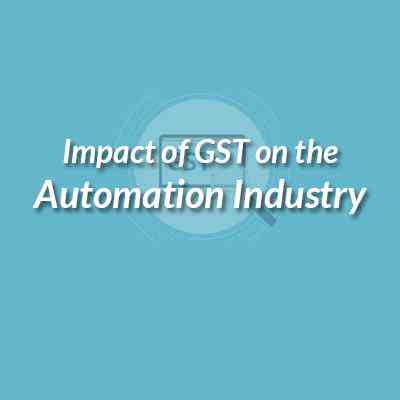Articles
Impact of GST on the Automation Industry

The Goods and Services Tax (GST) has been trending since few days and it is one of the most powerful tax reforms in India. Introduction of CGST and SGST/GST plays a crucial role in the automation industry. It is a landmark in the country’s taxation regime.
Let us have a look on the impact of GST on the automation industry:
Automation industry plays a crucial role as it is one of the major economic drivers for the development of economies across the globe. A complex tax structure, inadequate infrastructure, and bureaucracy have been reducing the capability to perform well on a global scale and is overcoming the automation industry. As per the sources, the GST rate item wise list has been increased and there was an increment of minimum of 3% on all products.
Implementation of GST act can lead to experience a paradigm shift in the automation industry to and manufacture products.
Impact of GST on the Automation Industry:
Reduced Cost of Production
Implementation of GST leads to the reduced cost of production that is anticipated to be spurred by tax reduction. The advantage of GST administration in the automation industry is non-accessibility of union or central tax credit over state taxes and vice versa can be removed. Unrestricted tax credit can be taken into consideration. Even if there is 2% lower tax rate in GST it will increase the profitability of the Manufacturer by 10%.
Hassle free Supply of Goods
The new GST or CGST or SGST model will coalesce the automation industry and assist the smooth flow of goods within the industry.
Restructuring of Supply Chain Management
Three prospects of GST, an additional 1% tax on supply of commodities, the supply of goods and services to oneself and input tax credit on inter-state sale may drive the necessity for supply chain restricting.
Area based Exemptions
The implantation of GST will send out positive signals to the world and the automation industry can be seen as a unified market.







